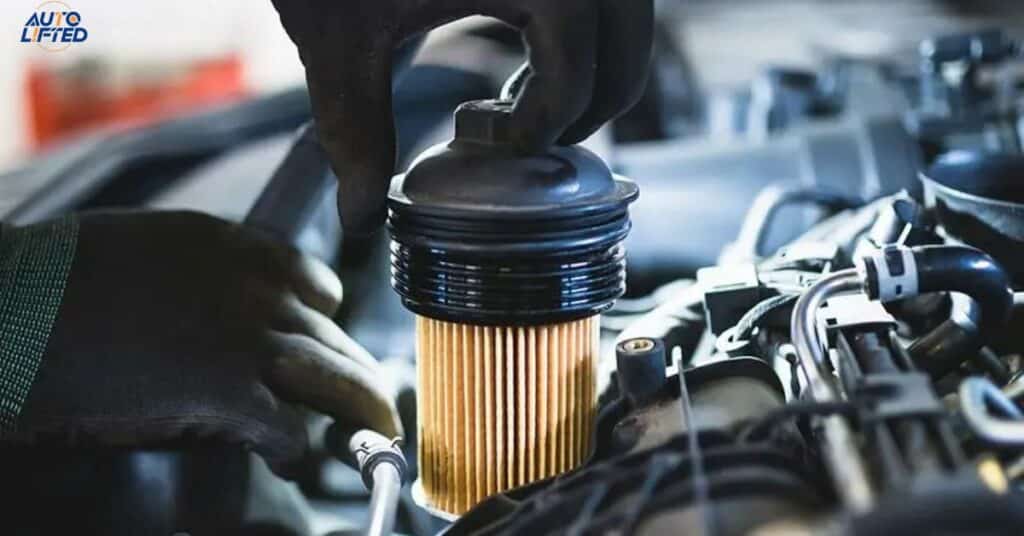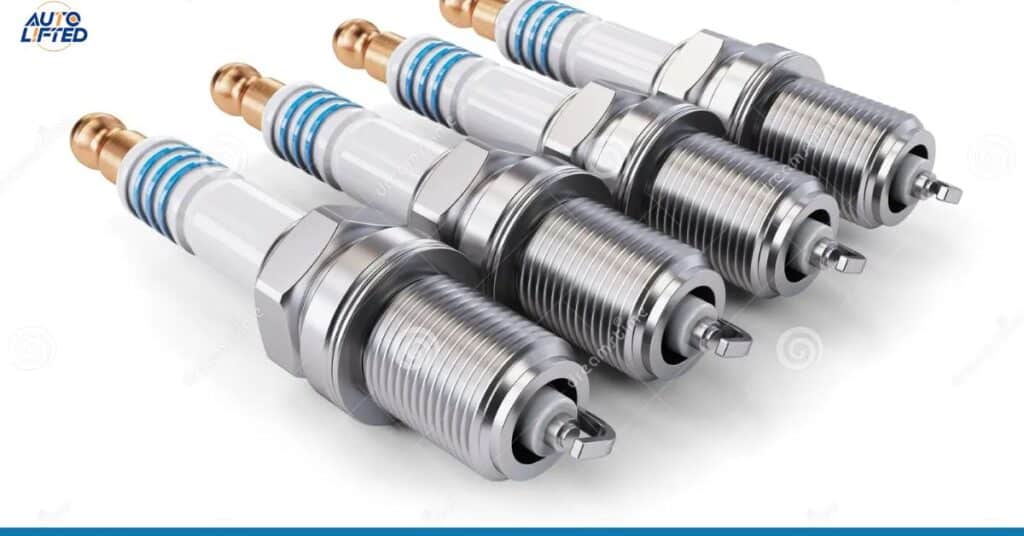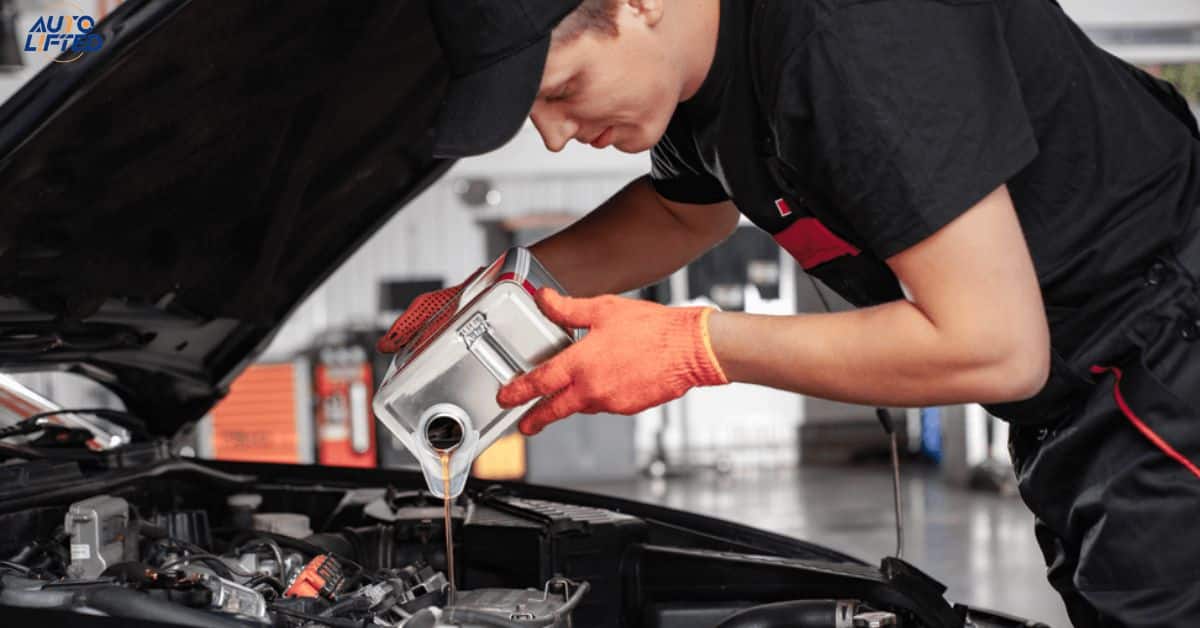Experiencing jerking on your vehicle after an oil trade could indicate troubles inclusive of incorrect oil viscosity or overfilling potentially disrupting engine overall performance and requiring immediately attention to diagnose and resolve the hassle.
Is your automobile suddenly jerking after an oil alternate? it may be due to factors like incorrect oil viscosity or overfilling. these problems can disrupt your engine’s clean operation. let’s unravel the thriller and fasten your automobile’s hiccup for a smoother journey ahead.
Your vehicle appearing unusually after an oil exchange? It is probably jerking because of problems like incorrect oil viscosity or overfilling. these errors can disrupt engine overall performance inflicting the auto to jolt abruptly. let’s deal with those concerns to make sure your automobile runs easily and accurately on the road.
Why Is My Car Jerking After Oil Change?
Experiencing jerking on your automobile after an oil exchange may be unsettling. One potential cause is using the incorrect oil viscosity. If the viscosity isn’t appropriate on your engine, it can avert proper lubrication leading to rough using. Overfilling the oil reservoir is any other not unusual trouble which could result in jerking, as extra oil creates air bubbles, disrupting engine overall performance.
A dirty oil filter will be in charge for the jerking sensation. A clogged clear out restricts oil drift to the engine, causing it to work tougher and resulting in choppy overall performance. regularly changing the oil filter out is vital to keep smooth operation and prevent jerking after oil adjustments the usage of the wrong oil viscosity in your car can result in numerous engine problems.
Also read this:Can I Check To See If A Motorcycle Is Stolen With The Vin Number?
Wrong Oil Viscosity
Using the wrong oil viscosity on your automobile can lead to various engine troubles. If the oil viscosity is just too high it is able to be too thick for proper movement inflicting the engine to stress and main to reduced performance. If the oil viscosity is just too low it can no longer provide sufficient lubrication ensuing in increased friction and capacity harm to engine components.

Consulting your proprietor’s guide for the encouraged oil viscosity is important. The manual affords unique recommendations tailor-made for your automobile’s engine requirements. by means of adhering to these suggestions you make sure that your engine receives the correct lubrication it wishes to perform easily and successfully stopping capacity problems related to the use of the incorrect oil viscosity.
Low-Quality Oil
The use of low-quality oil for your vehicle can lead to great engine troubles. Low-grade oils regularly contain impurities that can clog engine components, main to reduced overall performance and improved put on and tear. To avoid these issues, it is crucial to constantly use 86f68e4d402306ad3cd330d005134dac oil that meets the specs advocated in your car.

Consulting your proprietor’s manual or a depended-on mechanic assist you to perceive the correct sort of oil to your automobile. choosing 86f68e4d402306ad3cd330d005134dac oil may additionally contain a barely better preliminary cost, however it could ultimately prevent money through preventing expensive maintenance and increasing the lifespan of your engine. additionally, adhering to a regular oil trade agenda with 86f68e4d402306ad3cd330d005134dac oil guarantees that your engine remains properly-lubricated and guarded in opposition to capability damage due to low-great oil.
Dirty Oil Filter
A dirty oil filter can significantly impact your car’s performance and engine health. When the oil filter becomes clogged with dirt and debris, it restricts the flow of oil to the engine, leading to poor lubrication and increased friction. This can result in engine inefficiency, reduced fuel economy, and potential damage to vital components.

Regularly replacing the oil filter is essential to maintain optimal engine performance and prolong the life of your vehicle. By following the manufacturer’s recommendations for oil filter replacement intervals, you ensure that clean oil continues to circulate freely throughout the engine, preventing buildup of contaminants and preserving its efficiency. The investing in a high-quality oil filter can provide superior filtration and better protection against dirt and debris, further safeguarding your engine from damage.
Overfilling the Oil
Overfilling the oil reservoir in your car can have detrimental effects on engine performance. When there’s too much oil it can lead to excessive pressure within the engine, causing air bubbles to form in the oil. These air bubbles disrupt the lubrication process and can result in erratic engine behavior, such as jerking or stalling.
To avoid overfilling the oil, it’s essential to follow the manufacturer’s guidelines for the correct oil level. Before adding oil, check the dipstick to ensure that the oil level is within the recommended range. If you accidentally overfill the oil, you’ll need to drain the excess oil to bring it back to the proper level. Regularly checking and maintaining the oil level in your car helps ensure smooth engine operation and prevents potential damage caused by overfilled oil reservoirs.
Faulty Spark Plugs

Faulty spark plugs can significantly impact your car’s performance and fuel efficiency. Here’s how they can affect your vehicle:
Misfiring Engine: Faulty spark plugs may fail to ignite the fuel-air mixture properly leading to misfires and erratic engine behavior.
Decreased Power: Worn-out spark plugs can cause the engine to lose power resulting in sluggish acceleration and overall poor performance.
Increased Fuel Consumption: Faulty spark plugs can lead to inefficient combustion causing the engine to burn more fuel than necessary thus reducing fuel efficiency.
To address issues with faulty spark plugs consider the following solutions:
Regular Inspection: Inspect spark plugs regularly for signs of wear such as erosion or carbon buildup and replace them as needed.
Correct Replacement: Use the appropriate type of spark plugs recommended for your vehicle to ensure proper ignition and performance.
Prompt Replacement: If you notice symptoms of faulty spark plugs such as rough idling or decreased power replace them promptly to prevent further engine damage and maintain optimal performance.
When to Ask a Mechanic Online

When to ask a mechanic online can be beneficial for various car issues. Here are some situations highlighting when seeking online mechanic assistance is advantageous:
Immediate Advice: Online mechanics are available round the clock providing instant assistance without the need for appointments or travel.
Second Opinions: If you’re unsure about a diagnosis from your local mechanic an online consultation can offer a quick and convenient second opinion.
Convenient Knowledge: Online mechanics can help enhance your understanding of your vehicle’s workings and maintenance conveniently offering expertise at your fingertips.
In particular, our service provides several advantages for addressing car troubles:
24/7 Availability: Our platform offers round-the-clock access to certified expert mechanics ensuring help is available whenever you need it.
Certified Experts: Our team consists of skilled and specialized mechanics who can provide accurate advice and guidance tailored to your specific car issues.
Cost-Effectiveness: Online consultations often offer cost-effective solutions compared to traditional in-person visits saving you time and money while resolving your car problems effectively.
Frequently Asked Questions
Can oil change cause car to jerk?
The oil change can cause a car to jerk if incorrect oil viscosity overfilling or other related issues occur.
Why does my car feel weird after oil change?
Your car may feel weird after an oil change due to factors like using the wrong oil viscosity or overfilling which can disrupt engine performance.
Why is my car rough after an oil change?
Your car may feel rough after an oil change due to potential issues such as using the wrong oil viscosity or dirty oil filter affecting engine performance.
Is it normal for a car to jerk after a transmission fluid change?
It’s not normal for a car to jerk after a transmission fluid change it could indicate issues such as improper fluid level or wrong type of fluid used.
Does engine run smoother after oil change?
The typically engines run smoother after an oil change due to fresh oil providing better lubrication and cleaning engine components.
How should a car feel after an oil change?
After an oil change a car should feel smoother and more responsive due to improved engine lubrication and performance.
Conclusion
Experiencing jerking after an oil exchange can be unsettling often stemming from issues like incorrect oil viscosity overfilling or grimy oil filters. it’s essential to deal with those promptly to ensure smooth riding and save you capacity engine harm. with the aid of adhering to producer specifications for oil type and level changing filters regularly and searching for professional help while wished you could hold your car’s performance and durability.
Recollect a well-maintained engine runs easily so stay vigilant and proactive in addressing any issues that stand up publish-oil alternate to maintain your car running seamlessly on the road. key phrases: jerking, oil change, wrong oil viscosity overfilling grimy oil filter smooth using engine harm manufacturer specifications professional assistance properly-maintained engine.

Passionate automotive enthusiast sharing insights, tips, and stories from the world of cars. Join me on an exhilarating journey through the roads of automotive excellence.
